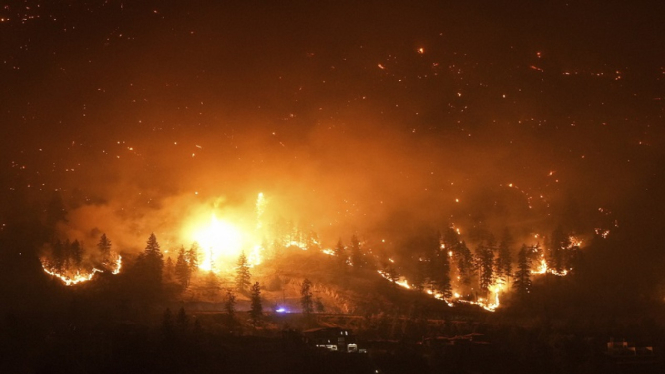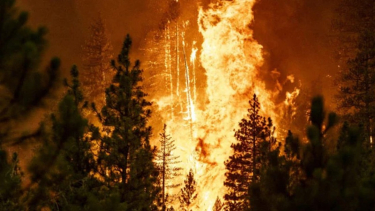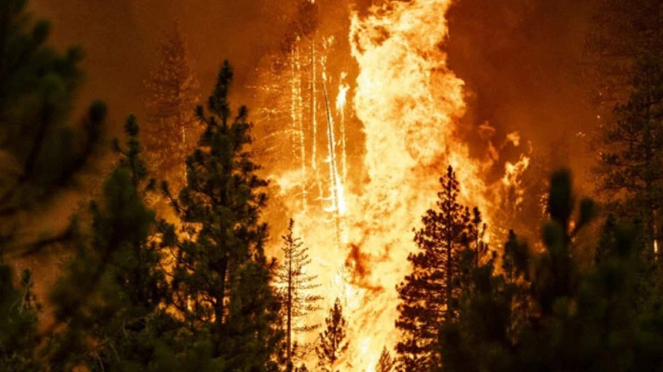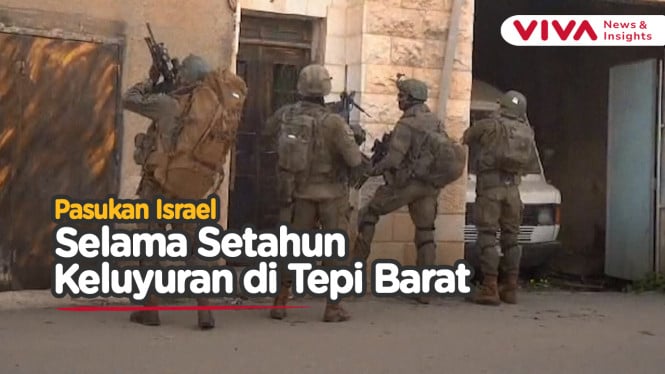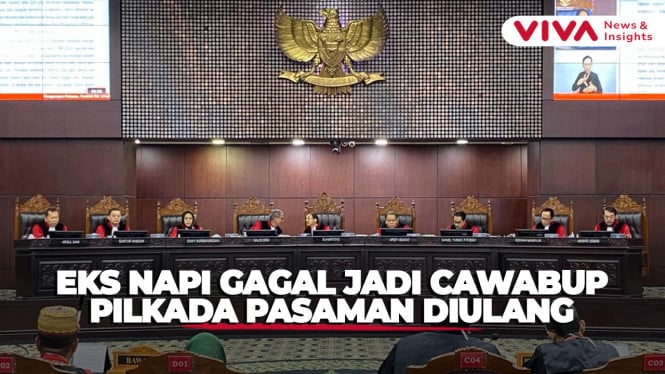Thousands People Evacuated as Massive Wildfires in Canada
- Darryl Dyck/The Canadian Press via AP
Canada – Thousands of residents to evacuate the capital of Canada's Northwest Territories as a massive wildfire burned just outside the city, while firefighters battled a growing fire that set home ablaze in a city in British Columbia.
Thousands of people in Yellowknife drove hundreds of miles to safety, with authorities guiding motorists through fire zones, while others waited in long lines lines for emergency flights as the worst fire season on record in Canada showed no signs of easing.
Airtankers flew missions to keep the only route out of Yellowknife open. Meanwhile, a network of fire guards, sprinklers and water cannons was established to try to protect the city from the fire.
Ilustrasi kebakaran hutan.
- Istimewa
Fire Information Officer Mike Westwick told The Associated Press by phone Friday evening that the fire did not advance Friday and was still 15 kilometers (9 miles) northwest of the the city, partly because cooler temperatures created less fire activity and cleared some smoke, allowing air tankers to safely fly and drop fire retardant.
Even so, “we’ve got the wrong kind of wind” in the forecast gusty and from the west and northwest and no rain, Westwick warned.
Shane Thompson, the territory’s minister of enviornment and natural resources, said more than 19,000 people had left Yellowknife in less than 48 hours. About 15,000 went by car and 3,800 flew out.
“This is an amazing achievement to evacuate so many people safely,” he said.
The fire, caused by lightning more than a month ago, is about 1,670 square kilometers (644 square miles) and “not going away anytime soon,” Westwick said, adding that the blaze hads jumped three different containment lines, fueled by dry weather and dense forests.
Gas stations that still had fuel remained open on Friday, despite the town being almost empty, with one grocery store, pharmacy and bar still open.
"It was like having a pint at the end of the world," said Kieron Testart, who went door-to-door in the surrounding Dettah and NDilo First Nation communities to check on residents.
Indigenous communities have been particularly hard hit by the wildfires, which threaten important cultural activities such as hunting, fishing and gathering native plants.
Hundreds of kilometers (miles) south of Yellowknife, homes burned in West Kelowna, British Columbia, a city of about 38,000, the fire chief said.
Premier David Eby declared a state of emergency for the province due to the rapidly evolving fire situation. "We face a very challenging situation in the next few days," Eby said at news conference Friday.
He said the decree would give authorities a number of legal tools, including the power to prevent people from traveling to dangerous areas and ensure access to accommodation for evacuees and heavy equipment to fight the fires.
